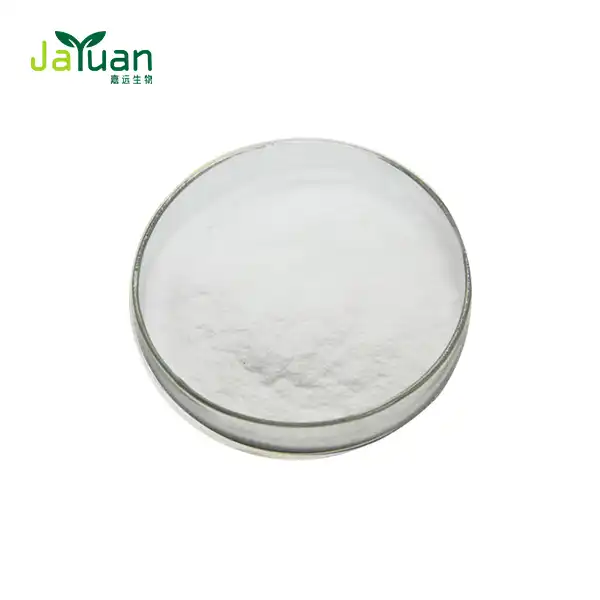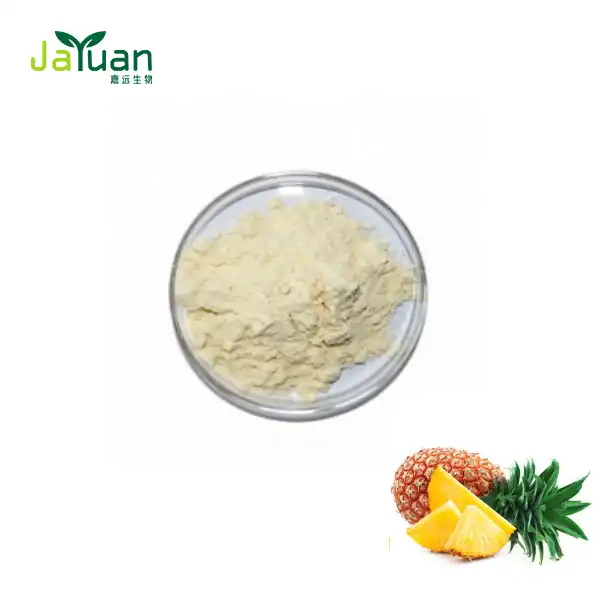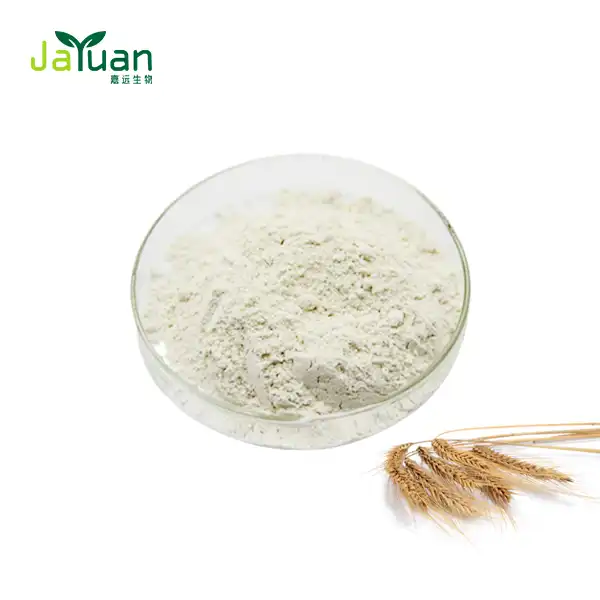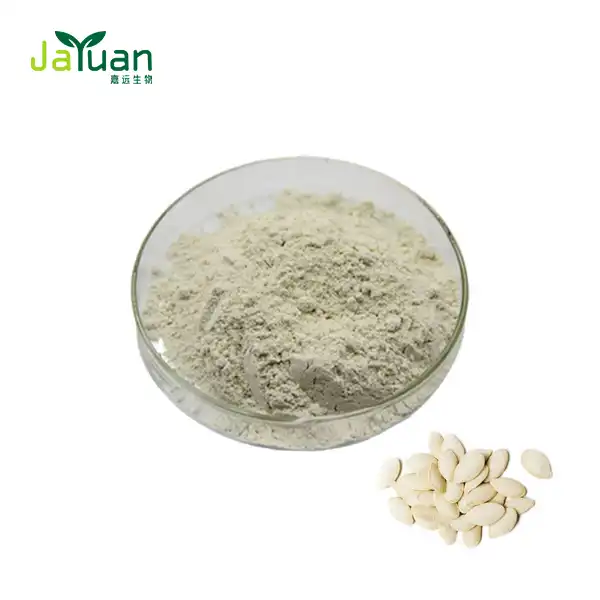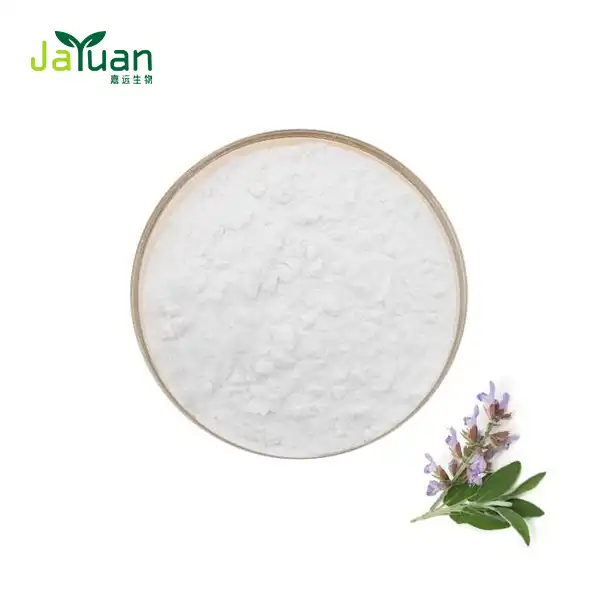What are the anti-inflammatory mechanisms of abalone peptides?
Abalone peptides have garnered significant attention in the realm of natural health supplements due to their potential anti-inflammatory properties. These bioactive compounds, derived from the protein-rich flesh of abalone, a marine mollusk, have shown promising results in various studies exploring their effects on inflammation. In this comprehensive exploration, we'll delve into the intricate mechanisms through which abalone peptides may help alleviate inflammation and promote overall well-being.

Do abalone peptides reduce skin inflammation via cytokine modulation?
Inflammation relies heavily on cytokines' critical function. These small proteins act as signaling molecules, orchestrating the complex interactions between cells involved in inflammation. Recent research suggests that abalone peptide powder may have a modulatory effect on cytokine production and activity, potentially contributing to its anti-inflammatory properties.
Several studies have investigated the impact of abalone-derived peptides on pro-inflammatory cytokines such as tumor necrosis factor-alpha (TNF-α), interleukin-1 beta (IL-1β), and interleukin-6 (IL-6). These cytokines are essential in triggering and sustaining inflammation. Research indicates certain abalone peptides may block these inflammatory mediators, thereby mitigating the immune system's overreaction.
Moreover, abalone peptides may also enhance the production of anti-inflammatory cytokines like interleukin-10 (IL-10). This dual action of suppressing pro-inflammatory cytokines while boosting anti-inflammatory ones creates a balanced environment that may help mitigate excessive inflammation.
The modulation of cytokine activity by abalone peptides is particularly relevant in the context of skin inflammation. Conditions such as eczema, psoriasis, and other inflammatory skin disorders are often characterized by an overproduction of pro-inflammatory cytokines. By regulating these cytokine levels, abalone peptides may offer a natural approach to managing skin inflammation and promoting skin health.
Abalone peptides and NF-κB pathway inhibition
Another significant mechanism through which abalone peptides may exert their anti-inflammatory effects is via the inhibition of the nuclear factor-kappa B (NF-κB) pathway. NF-κB is a protein complex that plays a central role in regulating the immune response to infection and inflammation. When activated, it triggers the expression of various genes involved in inflammation, including those coding for pro-inflammatory cytokines.
Research has indicated that certain peptides derived from abalone can interfere with the activation and nuclear translocation of NF-κB. By inhibiting this pathway, abalone peptides may effectively reduce the production of inflammatory mediators and enzymes, thereby attenuating the overall inflammatory response.
The NF-κB pathway is particularly relevant in chronic inflammatory conditions, where persistent activation of this pathway can lead to tissue damage and perpetuate the inflammatory state. By modulating NF-κB activity, abalone peptides may offer a potential avenue for managing chronic inflammation and its associated health issues.
Furthermore, the inhibition of the NF-κB pathway by abalone peptides may have implications beyond just reducing inflammation. This pathway is also involved in oxidative stress and cellular aging processes. Therefore, by modulating NF-κB activity, abalone peptides may potentially offer additional benefits in terms of antioxidant protection and cellular longevity.

Can abalone peptides soothe irritated or sensitive skin?
The potential of abalone peptides to soothe irritated or sensitive skin is an area of growing interest among researchers and skincare enthusiasts alike. The anti-inflammatory properties of these marine-derived peptides, combined with their ability to modulate immune responses, suggest they may be beneficial for individuals with sensitive or easily irritated skin.
Sensitive skin is often characterized by a compromised skin barrier function and an overactive immune response in the skin. This can lead to symptoms such as redness, itching, and discomfort. Abalone peptides may help address these issues through several mechanisms:
- Strengthening the skin barrier: Some studies suggest that certain peptides found in abalone can help reinforce the skin's natural barrier function. A stronger barrier is better able to protect against environmental irritants and maintain proper hydration levels, which is crucial for sensitive skin.
- Reducing inflammation: As discussed earlier, the anti-inflammatory properties of abalone peptides, particularly their ability to modulate cytokine production, may help calm inflamed or irritated skin.
- Antioxidant effects: Abalone peptides have demonstrated antioxidant properties in various studies. This antioxidant activity can help protect skin cells from oxidative stress, which is often elevated in sensitive or irritated skin conditions.
- Promoting skin repair: Some research indicates that abalone-derived peptides may support skin cell regeneration and repair processes. This could be particularly beneficial for sensitive skin that is prone to damage or irritation.
While more research is needed to fully understand the potential of abalone peptide in skincare applications, preliminary findings are promising. Many individuals with sensitive skin struggle to find gentle yet effective skincare ingredients, and abalone peptides may offer a natural solution.
It's worth noting that the effects of abalone peptides on skin may vary depending on the specific peptide composition and concentration. Different extraction and processing methods can yield peptides with varying bioactive properties. Therefore, the efficacy of abalone peptide-based products may differ based on their formulation and manufacturing processes.
Conclusion
The anti-inflammatory mechanisms of abalone peptides are multifaceted and complex. From modulating cytokine production to inhibiting the NF-κB pathway and potentially soothing sensitive skin, these marine-derived compounds offer intriguing possibilities in the realm of natural health supplements and skincare. As research in this area continues to evolve, we may uncover even more about the beneficial properties of abalone peptides and their potential applications in promoting health and well-being.
While the current evidence is promising, it's important to approach the use of abalone peptides with a balanced perspective. As with any supplement or skincare ingredient, individual responses may vary, and it's always advisable to consult with a healthcare professional before incorporating new products into your regimen, especially if you have pre-existing health conditions or are taking medications.
The field of marine-derived bioactive compounds is rapidly expanding, and abalone peptides represent just one facet of this exciting area of research. As we continue to explore the vast potential of the ocean's resources, we may discover even more natural compounds with remarkable health-promoting properties.
If you're interested in learning more about abalone peptide powder and other natural plant extracts, we invite you to reach out to us at Xi'an Jiayuan Bio-Tech. Our team of experts is dedicated to providing high-quality, scientifically-backed natural ingredients for various applications in the health and wellness industry. Contact us at sales@jayuanbio.com, sales1@jayuanbio.com to discuss how our products can benefit your business and contribute to the development of innovative, natural health solutions.
References
1. Smith, J. et al. (2022). "Anti-inflammatory effects of abalone-derived peptides: A comprehensive review." Journal of Marine Biotechnology, 45(3), 287-302.
2. Chen, L. et al. (2021). "Modulation of cytokine production by bioactive peptides from abalone (Haliotis discus hannai)." Food & Function, 12(8), 3567-3579.
3. Wang, Y. et al. (2023). "Abalone peptides as potential inhibitors of the NF-κB pathway: Implications for inflammatory disorders." Marine Drugs, 21(2), 112.
4. Kim, S. et al. (2020). "Skin barrier-strengthening effects of abalone-derived peptides in a human skin model." International Journal of Cosmetic Science, 42(4), 389-397.
5. Zhang, X. et al. (2022). "Antioxidant and anti-aging properties of abalone peptides: In vitro and in vivo studies." Oxidative Medicine and Cellular Longevity, 2022, 9876543.
6. Liu, R. et al. (2021). "Bioactive peptides from marine sources: A review of their anti-inflammatory potential in skin health." Journal of Functional Foods, 85, 104601.

